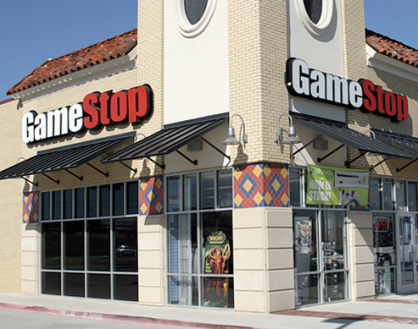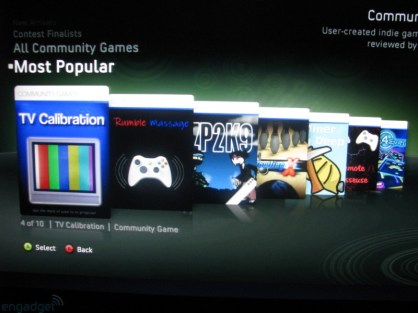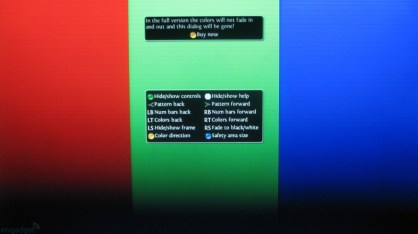The alleged practice of GameStop lending new copies of games to employees at their stores and then later selling those games as new, unused copies, may be a violation of federal law.
GameStop’s “check-out” policy, confirmed to Kotaku by a number of the chain’s managers and employees, could fall under scrutiny of the Federal Trade Commission.
Reached for comment this afternoon, GameStop officials declined to comment.
“We do not comment on corporate policies that are competitive in nature,” said Chris Olivera, vice president of corporate communications. “As your questions relate to company training, operations and discounting practices, I would not be able to provide feedback.”
Kotaku contacted the FTC earlier today to determine if the practice, which sells games already played by employees at the new price, not the used price—used titles are typically priced about $5 cheaper than brand new versions—would be considered deceptive advertising or marketing. The FTC’s Bureau of Consumer Protection is mandated to protect consumers against unfair or deceptive acts or practices in commerce. Violations of FTC restrictions are a violation of federal law, according to the commission.
“The Federal Trade Commission protects consumers from unfair or deceptive advertising and marketing practices, and we encourage any consumer with a complaint about a company’s business practices to contact us,” said FTC public affairs specialist Betsy Lordan.
Lordan said she was unable to confirm or deny the existence of any investigation that the commission is conducting. As a rule the FTC does not comment on the conduct of a particular business.
The company’s check-out policy, provided to us and verified by a number of GameStop employees states:
Associates are allowed to check out one item of store merchandise for personal use for up to four days. Merchandise checkout is a privilege, not a right, and may be revoked at any time.
Hardware, accessories, sealed CDs or software programs that must be altered to install may not be checked out. If the on-hand quantity of a product equals one, the item cannot be checked out. Hot titles may also be prohibited from being checked out, regardless of the on-hand quantity in the store.
Associates may only check out items from the store in which they work. Associates are personally responsible for any merchandise they are allowed to check out.
Merchandise must be properly checked out in the Employee Merchandise Check Out Log in the Game Planner.
If the product is returned in unsellable condition, or if anything is missing from the package, or if the product is not returned, the Associate must purchase the product at the current price less Associate discount.
Copying of the software and/or manuals/instructions is illegal and is strictly prohibited. Merchandise that leaves the store without being properly checked out or purchase is considered to be unauthorized removal of Company property and may result in performance coaching up to and including termination of your employment.
According to a number of GameStop employees and managers across the country, all of which spoke to us on the condition of anonymity, new copies of games rented out to employees are often mixed in with the unplayed display copies. And both are sold at “new” prices.
When a shipment of video games initially arrives at a store, managers are told to “gut” several copies of the game, removing the disc or cartridge from the packaging so it can be displayed on the shelf without concern of theft, according to our sources.
The games are then placed in protective sleeves or cases under the counter. If a customer asks why the game is not sealed they are typically told the the game is a display copy. The game is still sold as new.
When check-out games are returned, we were told, they are placed with the gutted display copies. If a customer asks about these, they are typically told they are display copies, not that they have been played before.
Since the copies are often placed with display copies, even managers and employees typically don’t know which of these games have been played and which haven’t.
While some GameStop managers will on occasion offer a “Shop Worn Discount” for a gutted or checked out title, we are told by our sources that this is actually against GameStop policy which states:
“Do not apply Shop Worn Discounts to any new, used or checked out games, it may only be applied for damaged packaging and new accessories which have been opened.”
Headquartered in Grapevine, Texas, GameStop is the world’s largest video game retailer, operating nearly 6,000 stores worldwide. The company’s revenue was $8.8 billion in 2008.
XBOX 360 WITH TV CALIBRATION
April 1, 2009

 For most of this month, one of the top 10 ranked Community Games on Major Nelson’s list hasn’t been a game at all, the TV Calibration app is a 200 point ($2.50) tool loaded with plenty of test patterns to make sure your video setup is configured perfectly. There’s also a free trial, so we loaded it up and can say it does exactly what it says it does. Most games have at least some PQ optimization helpers, but it’s unlikely you’ll be able to get this detailed information about pixel mapping and test color patterns with a Gears of War disc, and hey, you gotta make sure those Netflix streams look their best on your HDTV. Other calibration tools may have a few more tests and work on more than one device, but for the price it seems to be a good value. Check out the gallery to see a few of the patterns included, or download it from the marketplace and give it a try.
For most of this month, one of the top 10 ranked Community Games on Major Nelson’s list hasn’t been a game at all, the TV Calibration app is a 200 point ($2.50) tool loaded with plenty of test patterns to make sure your video setup is configured perfectly. There’s also a free trial, so we loaded it up and can say it does exactly what it says it does. Most games have at least some PQ optimization helpers, but it’s unlikely you’ll be able to get this detailed information about pixel mapping and test color patterns with a Gears of War disc, and hey, you gotta make sure those Netflix streams look their best on your HDTV. Other calibration tools may have a few more tests and work on more than one device, but for the price it seems to be a good value. Check out the gallery to see a few of the patterns included, or download it from the marketplace and give it a try.